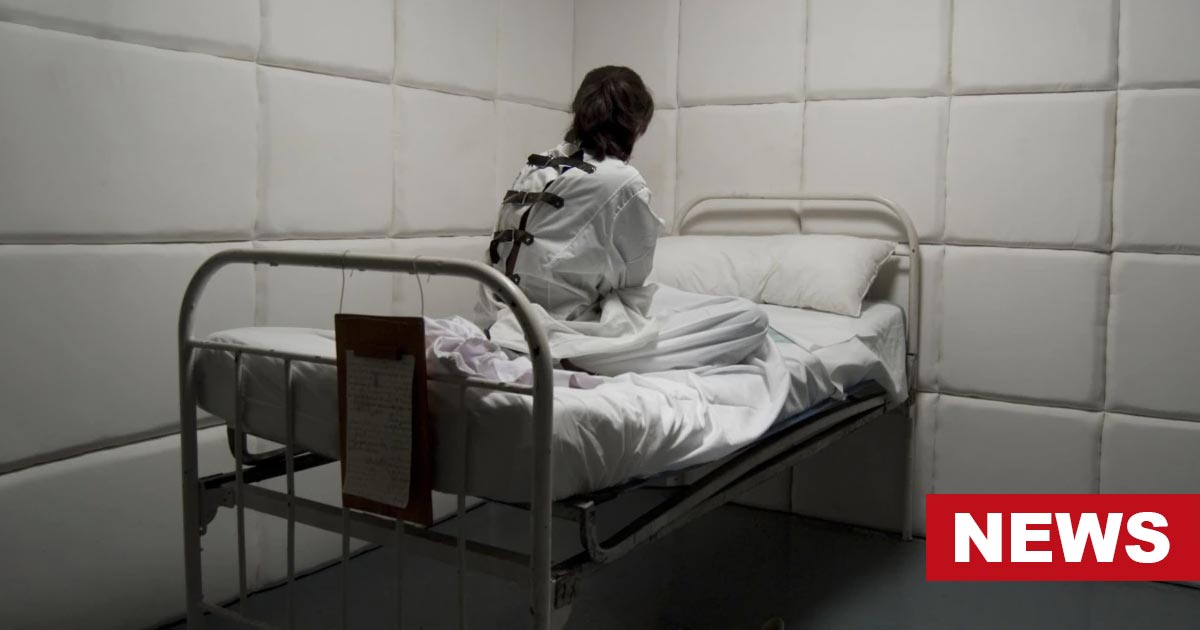The Chinese Business View, a newspaper in Xi’an, recently published a harrowing story about an unwilling Chinese couple’s asylum admission and its implications for the mental health crisis brewing in the country.
The story ran that the wife, referred to as Wang, claimed that she was forcibly taken to a private hospital by five individuals posing as medical staff. Wang alleged that she was subjected to various mistreatment, including being tranquilized, Tasered, restrained in a straitjacket, forced to take medication, and even subjected to electro-convulsive therapy.
It is important to note that Wang had never been diagnosed with a mental illness and repeatedly tried to communicate her sanity to the doctors, but her pleas were ignored.
Upon the third night, Wang’s friends tracked her down and she was released. She described her experience as “unlawful imprisonment” and expressed trauma from the incident. Interestingly, her unnamed husband admitted to having her committed. He also accused Wang of having previously committed him to a psychiatric ward for 80 days without any visitors due to COVID-19 restrictions.
The husband had received multiple diagnoses, including depression, anxiety, bipolar disorder, and schizophrenia, from four different hospitals. Both husband and wife presented videos depicting instances of domestic abuse or violence as evidence.
According to China’s mental health law, patients must pose a risk of harm to themselves or others to be involuntarily admitted to a hospital. Despite the confirmation of these cases by local authorities, no action was taken.
A police investigation found no evidence of foul play. On top of that, China’s psych hospitals involved denied any wrongdoing, claiming that Wang’s treatment was in accordance with regulations. The official suggested that Wang could file a lawsuit if she disagreed with the treatment she received.
However, this Chinese marital dispute sparked mental health debate on a number of social sites. Within two days of the news breaking, a Chinese hashtag approximately translated as “health commission confirms couple sends each other to mental hospitals” has garnered a staggering 63 million views on the popular Chinese microblogging platform Weibo.
Additionally, a newsreel produced by the Orient Today newspaper, which included phone interviews with the couple and local health officials, amassed over 1.6 million views in a mere 24-hour period.
Huang Xuetao, a human rights lawyer and advocate for reforming China’s mental disability law, remarked on the incident in an interview with Chinese Business View, “Who on earth is sick: the couple or the current system? This absurd case of a couple acting as guardians and sending each other to psychiatric hospitals [should be ] discussed by the authorities!”
Insights Into China’s Mental Health Hospitalization Policy
The marital dispute and the unwilling Chinese couple’s asylum admission have ignited an extensive conversation on toxic intimate relationships, weaponization of mental health laws, and sincere mental health care.
Forced “mental health treatment” and admission into China’s mental health hospitalization is not uncommon in China, and there is a risk of individuals exploiting loopholes in the system to infringe on the rights of their family members.
Some Chinese institutions even grant “guardianship” to family members before a formal diagnosis of severe mental disorder is made. This situation bears similarities to conservatorship in the United States, where individuals can gain significant control over another person’s life and finances due to their mental health struggles, as seen in the case of Britney Spears.
When China’s Mental Health Law (MHL) was implemented in 2013, it mandated the human rights protection of people with mental illness and was expected to combat the epidemic of involuntary psychiatric hospitalization. Nonetheless, a 2022 study revealed that MHL had limited success in reducing such coercive practices.
In fact, a 2023 study published in Front Psychiatry claimed that the number of involuntary psychiatric patients hospitalized in China went up during the COVID-19 pandemic.
The people who underwent compulsory psychiatric treatment involuntarily were often those who could not count on physical, mental, or social assistance from family members. This further exacerbated feelings of despair and loneliness, enhancing instances of severe depression, anxiety, and cardiovascular diseases.
Furthermore, there were (and still are) significant challenges in addressing mental health disorders in China, with millions of adults affected. The lack of psychiatric facilities in many areas, the sensationalization of cases like this one, and closely controlled media discussions have contributed to the stigma surrounding mental health issues and discouraged individuals from seeking active help.
Therefore, it is essential to approach such cases with caution and ensure that individuals’ rights and well-being are protected. In a way, this Chinese marital dispute sparked mental health shortcomings, highlighting the need for speedy reforms in the mental health system and greater awareness of mental health issues in society.












